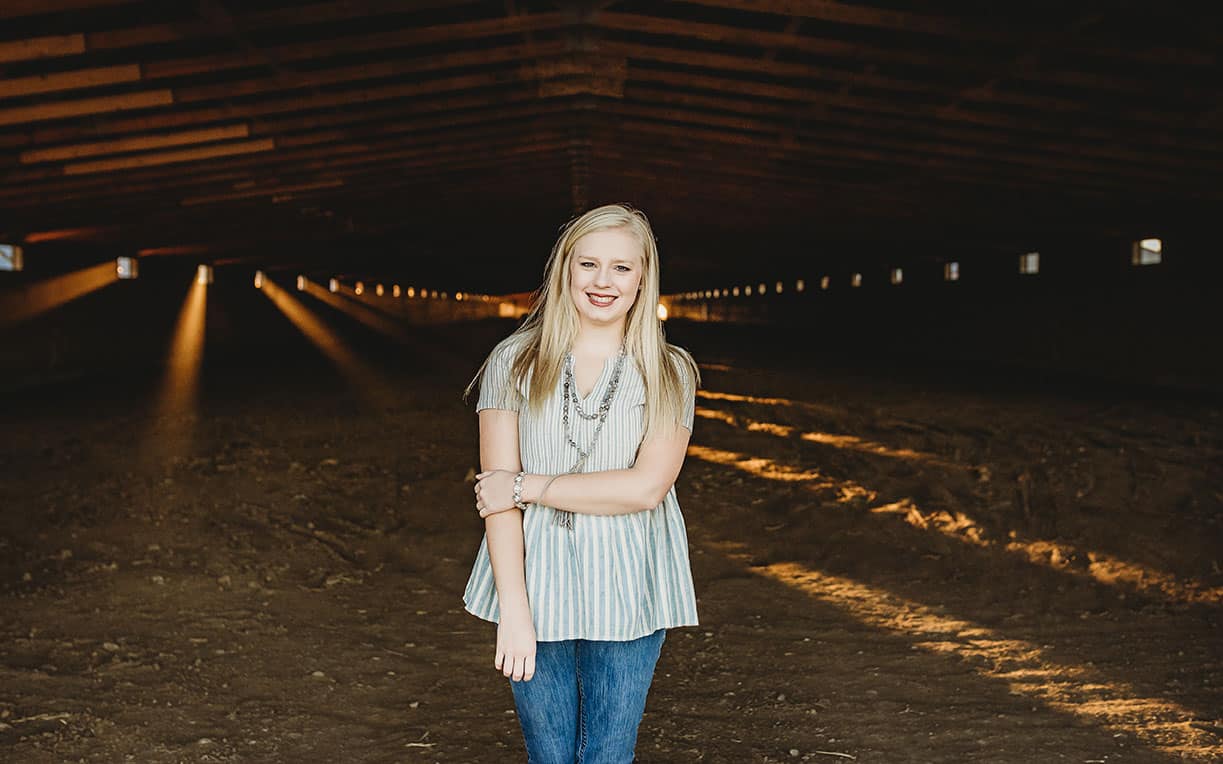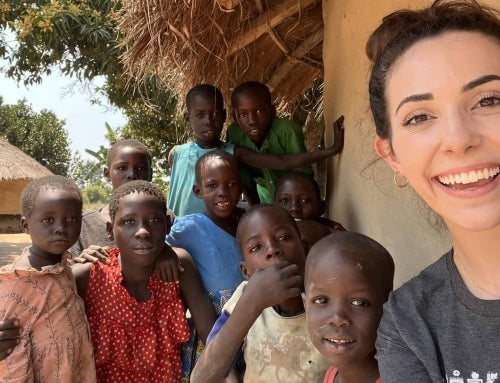After earning a degree and participating in nine internships in agricultural communications, Hannah Borg returned to the family farm to raise chickens and continue her family’s legacy.
Last year, Hannah Borg’s typical day included running across the University of Nebraska-Lincoln campus between classes and spending time in the broadcast studio for her rural radio internship.
Today, her schedule looks a bit different. Every morning by 7 a.m. she is in her family’s chicken barns checking on animals and equipment. After completing nine internships in agricultural communications while pursuing a bachelor’s degree in the same field, Borg made the decision to forgo a promising career off the farm to become one of the largest suppliers for Costco rotisserie chicken.
“I love the creative process and I love the digital space, but I also really love the space I’m working in now,” Borg says. “The majority of my time is spent in the barns where I have to think differently because I’m working with equipment and technology that use a totally different part of my brain.”
Borg made the decision to return to the family farm after spending time with her grandmother and combing through the family archives. As the sixth generation to farm on their land in Wakefield, Neb., she knew her heart and her future belonged on the family farm.
“I started reading about my great-great-grandparents, Carl and Anna, who came from Sweden in the 1880s,” Borg says. “I had the chance to understand each generation on the farm because of my grandmother’s excellent record keeping. Of this big family tree, I get to be a part of the family that is still on the original farm. How was I supposed to leave the farm, work for someone else and not be involved in an operation with such a great history?”
Borg’s ability to farm full time after graduating from college is possible due to the family’s decision to diversify. Today, they grow crops and raise cattle and chickens.
Borg will attend the 2019 New Century Farmer conference this week, and she plans to use the experience to expand her knowledge of production agriculture. The New Century Farmer program allows FFA members between the ages of 18 and 24, who are pursuing production agriculture as their career, to advance their leadership, personal and career skills. For five days, attendees learn about emerging technologies, business opportunities, advocacy and much more.
This year’s class has the highest percentage of female participants (46 percent) since the conference began. To put that into perspective, females made up only 5 percent of conference attendees in 2002.
“As a communications student, I didn’t spend a lot of time with people who are going into production agriculture,” Borg says. “Making the decision to go back to the farm was a little isolating, as everyone else I went to school with was choosing a different career path. I am looking forward to meeting other young producers, and I’m hoping to build my network in that space.”












